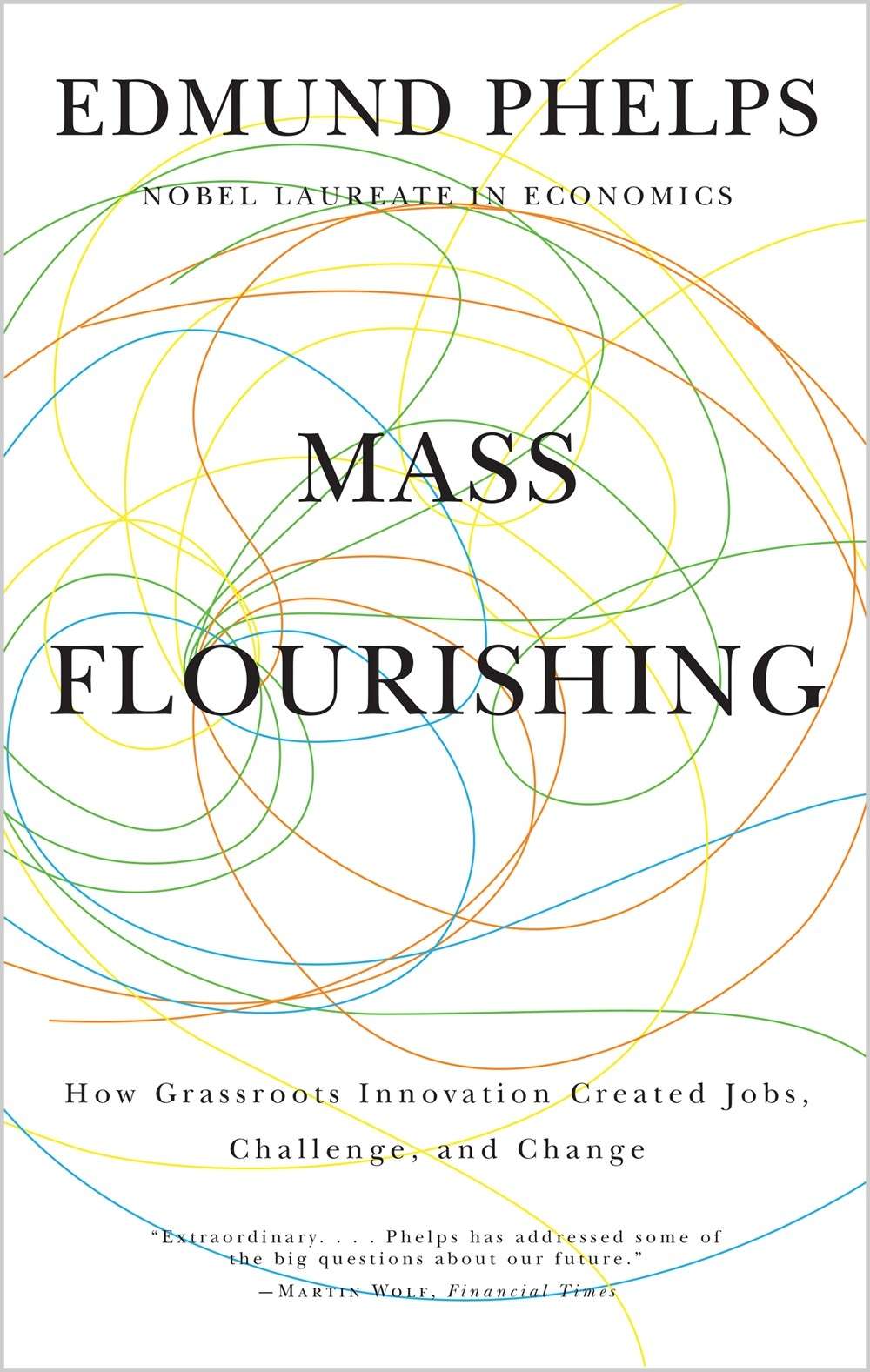Mass Flourishing

Editorial Princeton
Fecha de edición marzo 2015 · Edición nº 1
Idioma inglés
EAN 9780691165790
392 páginas
Libro
encuadernado en tapa blanda
Resumen del libro
In this book, Nobel Prize-winning economist Edmund Phelps draws on a lifetime of thinking to make a sweeping new argument about what makes nations prosper--and why the sources of that prosperity are under threat today. Why did prosperity explode in some nations between the 1820s and 1960s, creating not just unprecedented material wealth but "flourishing"--meaningful work, self-expression, and personal growth for more people than ever before? Phelps makes the case that the wellspring of this flourishing was modern values such as the desire to create, explore, and meet challenges. These values fueled the grassroots dynamism that was necessary for widespread, indigenous innovation. Most innovation wasn't driven by a few isolated visionaries like Henry Ford and Steve Jobs; rather, it was driven by millions of people empowered to think of, develop, and market innumerable new products and processes, and improvements to existing ones. Mass flourishing--a combination of material well-being and the "good life" in a broader sense--was created by this mass innovation.
Yet indigenous innovation and flourishing weakened decades ago. In America, evidence indicates that innovation and job satisfaction have decreased since the late 1960s, while postwar Europe has never recaptured its former dynamism. The reason, Phelps argues, is that the modern values underlying the modern economy are under threat by a resurgence of traditional, corporatist values that put the community and state over the individual. The ultimate fate of modern values is now the most pressing question for the West: will Western nations recommit themselves to modernity, grassroots dynamism, indigenous innovation, and widespread personal fulfillment, or will we go on with a narrowed innovation that limits flourishing to a few?
A book of immense practical and intellectual importance, Mass Flourishing is essential reading for anyone who cares about the sources of prosperity and the future of the West.
Biografía del autor
Edmund Phelps nació en Chicago y a los seis años se mudó a Hastings-on-Hudson, Nueva York. Obtuvo su licenciatura por la Universidad de Massachusetts Amherst en 1955 y en 1959 se doctoró por la Universidad de Yale.<br> Aunque inició su andadura laboral en RAND Corporation, en 1960 regresó al mundo académico. Entre 1966 y 1971 fue profesor de la Universidad de Pensilvania, donde estudió diversas dinámicas del mercado laboral, y más tarde se incorporó al Departamento de Economía de la Universidad de Columbia, a la que sigue vinculado como catedrático de Política Económica.<br> Tras años dedicado al estudio y a la investigación, en 2006 ganó el Premio Nobel de Economía, galardón que le fue concedido por sus aportes en el análisis sobre las compensaciones internacionales en las políticas macroeconómicas.<br> Ha escrito una docena de libros sobre crecimiento económico, teoría del desempleo, recesiones, innovación y satisfacción laboral. De ellos, en español se han publicado Economía política. Un texto introductorio (Antoni Bosch, 1995) y Una prosperidad inaudita (RBA, 2017).







